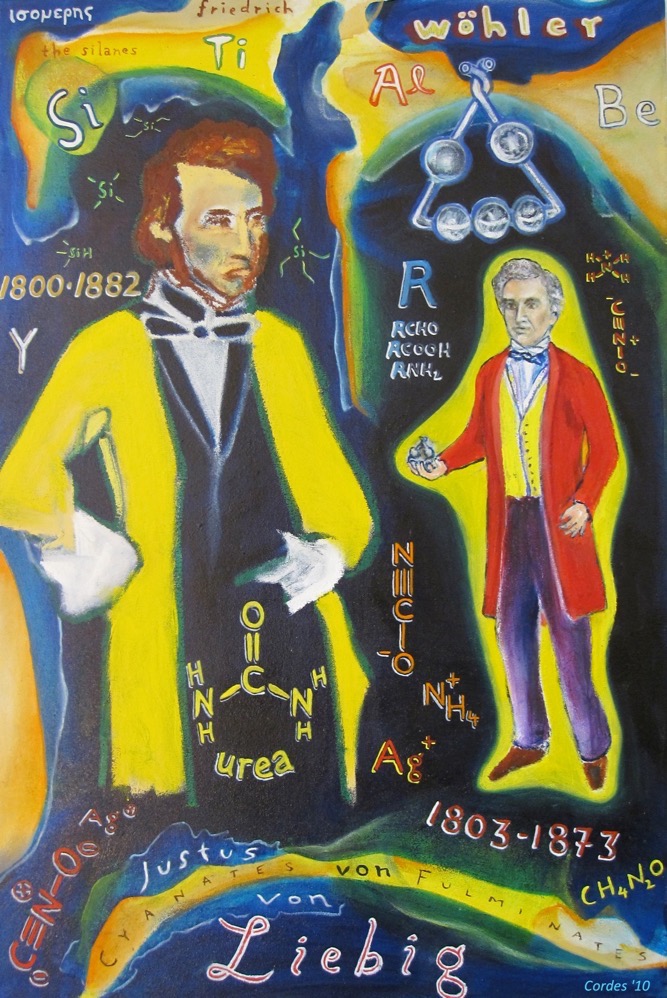Creation Myths
The first in the series are portraits of Friedrich Wöhler and Justus von Liebig.
Friedrich Wöhler (1800-1882) is often credited with establishing the science of organic chemistry in 1828. His synthesis of urea, a compound found in the urine of most animals, convinced many scientists of the time that chemists could synthesize the compounds hitherto produced only by living organisms.

This ability to mimic the organism is what gave organic chemistry its name. Nowadays, of course, the term has broadened to include the study of compounds of carbon, some of which have little or no association with living organisms. While Wöhler is often cited as the father of the science, other chemists of the time also made important contributions. One significant co-founder of the science was Justus von Liebig (1803-1873), a fellow German, an innovator and pioneer in agricultural chemistry, and one of the dandiest chemists of the age. Both Liebig and Wöhler made numerous contributions to inorganic chemistry as well, discovering and purifying a number of elemental metals and devising new schemes for purification, synthesis and analysis.


